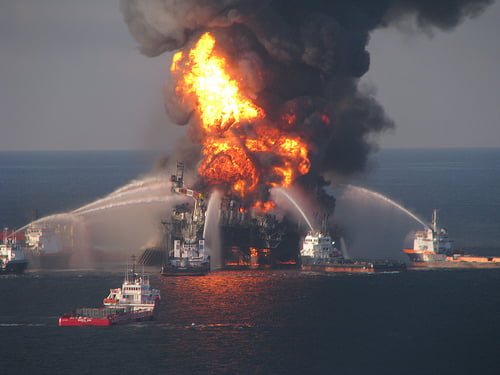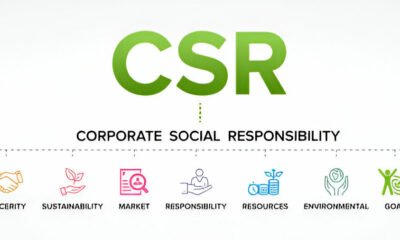

Features
We shouldn’t treat corporations and investors like children
Europe’s capacity to anticipate social and environmental disasters “appears to be limited” according to a comprehensive report by the European Environment Agency (EEA) last week. Raj Thamotheram offers his perspective.
Governments are continually forced to walk a line that ensures adequate regulation whilst avoiding the danger of too much red tape.
This is never truer than today, and in my view it is therefore wrong to lay all the blame for ecological disasters at the feet of governments and regulators; as if the corporations themselves were children who didn’t know any better.
Yes – regulation must be tightened, but often we already have all the tools we need; it’s just governments and regulators are too timid. I’d much rather we had harsher penalties for senior executives rather than an influx of new regulation, which is always open to be manipulated and distorted. If these corporate leaders were more personally worried about the impact of their cutting corners to deliver short-term shareholder value, they would make better decisions both for the long-term health of their companies and also for society.
Basically, the main focus must surely be on the companies themselves – and their investors, i.e. owners – who are far more important than regulators or consumers in defining corporate priorities. And on this critical issue, the investors, the report is weak – yes, there’s one chapter (chapter 25) on this subject and yes, the analysis is fine, but the recommendations are a bit theoretical. I’d like to have seen the EEA be bolder about what governments should expect investors to be doing.
Ensuring companies and investors implement genuine and effective environmental, social and governance (ESG) policies is the best way to address these ‘preventable surprises’. Of course it’s not easy, but working on the assumption that the majority are doing the best they can and only one or two ‘rotten apples’ are at fault, or that regulators can match corporate resources and find these ‘bad companies’ is surely doomed to fail.
As one expert has said about the state of corporate sustainability efforts today, the majority of companies are “mired in rampant incrementalism” and this goes for investors too. The consequences are happening every day on many issues, some small and some (very) big.
Just this week, for example, the EU is discussing how to prevent the destruction of bees, i.e. a hugely important pollination service provided ‘free’ by nature. No bees, no crops. So it would be a bit of a shame, wouldn’t it, to see the death of bees just to maximise the short-term profits of Bayer and other manufacturers of neonicotinoids?
And after the BP Gulf of Mexico crisis, with little change, companies like Shell and Cairn are piling into the Arctic. In all these cases, the vast majority of most mainstream investors – many of whom claim to be responsible or sustainable, and/or want good corporate governance – are silent, doing nothing more now than they did before Macondo. Wilful blindness in the face of such systemic wrong-doing is, to my mind, complicity.
So that’s why I support mandatory ESG reporting by companies and investors with governments taking a much more assertive role vis-a-vis the laggards and especially those who engage in greenwash.
Raj Thamotheram is an independent strategic adviser on sustainable investment. He was interviewed by Blue & Green Tomorrow last July.
Further reading:
The long-term matters, and sustainable investment holds the key to prosperity
Major changes needed to redirect investment onto a long-term path
BP to pay under 2% of annual profits in Deepwater Horizon fines


 Environment10 months ago
Environment10 months agoAre Polymer Banknotes: an Eco-Friendly Trend or a Groundswell?

 Environment12 months ago
Environment12 months agoEco-Friendly Home Improvements: Top 7 Upgrades for 2025

 Features9 months ago
Features9 months agoEco-Friendly Cryptocurrencies: Sustainable Investment Choices

 Features10 months ago
Features10 months agoEco-Friendly Crypto Traders Must Find the Right Exchange




























